- Home
- Fay Weldon
Darcy's Utopia Page 2
Darcy's Utopia Read online
Page 2
In the morning he said, ‘What will they say at home?’
I said, ‘I don’t care. What about you?’
He said, ‘Neither do I. Shall we stay here? Live here? Together?’
I said, ‘Why not? It could hardly be more expensive than living at home.’
And we both knew I lied but who cared?
He said, ‘Without home to distract us we could both do our pieces on Eleanor Darcy without others complaining, without children demanding. My tapes will help you, your tapes will help me.’
I said, ‘We’ll distract each other.’
He said, ‘But only in a supportive kind of way. We’ll get the balance right. We’re both workaholics. We’ll fuse.’
They had good office services at the Holiday Inn. They even provided us with word processors, IBM compatible; one each, it being a double room. I went down the road to Marks & Spencer for clothes. Mostly just satin slips and wraps and so on—I didn’t see myself going out much. What for? I called my number. Lou had put the answerphone on. The children would have got themselves to school. They were competent enough. My main function in the home, I remarked to Hugo, was as Witness to the Life. I left a message to say I had left home.
I gave my new telephone number to Aura, and settled down to love Hugo and prepare to write the life and times of Eleanor Darcy. Hugo went home once to fetch a suitcase, and was back within the hour. We did not wish to lose a minute of each other’s bodies, each other’s company, if it could possibly be helped. We had each other, we had our work, we had room service—what more did we need? We were well and truly happy. I had never felt the emotion before: nor, he said, had he.
From Valerie Jones’ first interview with Eleanor Darcy
A: I WILL NOT overburden you with my views on Darcy’s Utopia, the multiracial, unicultural, secular society the world must aim for if it is to have any hope of a future. I know you will simply leave it all out when you come to write your history of my life. I know you are concerned with what you call the human-interest angle, how I came to be who and what and where I am. But I have been created by a society interacting with a self: you can’t have one without the other. You will hold me up to other women as an example, how to start life in a back street as Apricot Smith, an untidy, misbegotten child; be promoted to Ellen Parkin, working wife of the ordinary down-at-heel hate-the-government kind; and to become the true love and wife of Professor Julian Darcy, Vice Chancellor of the University of Bridport.
You don’t care that Darcian Monetarism and the Bridport Scandal changed the thinking of nations: you just want to know how it was that in three decades God and the Devil between them managed to promote me from Apricot to Eleanor, by way of Ellen. And yes, it was promotion. As Eleanor Darcy I can go anywhere: it’s like a little black frock: you can dress it up with diamonds, dress it down with a cotton scarf: it always looks right. As Ellen Parkin I was only fit to run down to the corner shop in my slippers, or queue up for family benefit. And who would be interested in Parkin’s Utopia? Darcy’s Utopia has a much more convincing ring. Parkin smacks of small back streets and long-term illness—what’s left when the Devil has flown, sucking love out of you as he goes, leaving a burned-out patch behind. Names are magic, believe me. Better to be out of love as Eleanor Darcy than Ellen Parkin. The Ellen Parkins of the world love only once, and if it goes wrong give up.
Q: But you don’t change your nature by changing your name, surely?
A: Oh yes, you do. My advice to everyone is to change their name at once if they’re the least unhappy with their lives. In Darcy’s Utopia everyone will choose a new name at seven, at eleven, at sixteen and at twenty-four. And naturally women at forty-five, or when the last child has grown up and left home, whichever is the earliest, will rename themselves. Then life will be seen to start over, not finish. It is a perfectly legal thing to do, even in this current fearful and unkind society of ours; no deed poll is required. So long as there is no intent to defraud, anyone can call themselves anything at all. But so many of us, either feeling our identities to be fragile, or out of misplaced loyalty to our parents, feel we must stick with the names we start out with. The given name is a dead giveaway of our parents’ ambition for us—whether to diminish or enhance, ignore us as much as possible or control us forever—and the family name betrays our social origins. No, it will not do. It will have to change.
Q: I see. You spoke earlier of the Devil. Our readers are not so domestic as you suppose—any article on Good and Evil enjoys high readership figures. Do you believe in the Devil?
A: Of course. It’s unsafe not to. And what a grand creature the Devil is in himself! How he sucks energy even from where he stands! He is all temporary fire and sparks, terror and drama, whisked up out of nowhere: but when he flies off you see the real damage that has been done: something permanently denatured, altogether seedy and totally ignoble. To believe in God is to believe in the Devil. It is quite an insult to God to deny the Devil’s existence.
In Darcy’s Utopia, men will believe in the Devil in the sense that they will be sensitive to the forces working away within even the best planned of their social structures, bent on their destruction. As it is with people, so it is with these social structures—by which I mean the government, the church, the civil service, educational and caring organizations, lobbies, societies for this and that, quangos and so forth and so on. Wherever, in fact, people are gathered together in the interests of the better and more humane organization of society, there the Devil lurks. The greater the striving for good, the nearer the approach to it, alas, the harder and sharper the fall. In Darcy’s Utopia everyone will understand that the more extreme and present the good appears, the more pressing the danger that it will be promptly overthrown. Oh yes, in Darcy’s Utopia we will be on our guard. We will be vigilant and, what’s more, will understand what we must be vigilant about. We will not hide behind abstract terms such as ‘freedom’, ‘liberty’, ‘justice’, ‘dignity’. We will have lesser words, with more meaning.
Q: Talking about words, Mrs Darcy, what a pretty and unusual name Apricot is. How did you come by that? Was your mother particularly fond of fruit?
A: There was not much fruit about when I was a child. Sometimes we had sliced peaches for afters. So far as I’m aware, my mother named me after her brushed nylon nightie.
Q: You have a very soft voice. The tape recorder may not be picking up everything you say. I wouldn’t want to lose a word of it. Can you speak more closely into the mike? Her brushed nylon nightie, did you say?
A: That is what I said. There are a number of press cuttings which will help you as to the detail of my early life and times, and here in this folder are a few brief autobiographical sketches I happen to have written over the years. I hope you can read my writing. Do what you can with the material you have, and come back to me with any questions, or just for a chat. I have been rather out of circulation lately, preparing my magnum opus for publication. It’s good to be back in the world again.
Q: A magnum opus?
A: A blueprint for Darcy’s Utopia.
Q: You’ve found time for that as well?
A: As well as what?
Q: The court case must have taken up quite a lot of nervous energy.
A: My husband was on trial, not I.
Q: But Darcy’s Utopia is a kind of memorial to your husband?
A: He is not dead, Miss Jones, merely in prison. I am sure he would argue very strongly against many of my proposals, were he around to do so. I have borrowed his name because I like it, for no other reason. Besides, it is my name as much as his. After all, we are married.
Q: Of course. I’m sorry.
A: I think it is time to draw this interview to a close. We are going out for a healthy walk. I hear Brenda putting on the children’s wellies, against their wishes. Children do so like to go barefooted in the rain. Do you have children, Mrs Jones?
Q: I have two.
A: Lucky old you. I have none. Will you show yourself
out? I have been sitting on my leg, and it’s gone to sleep.
Valerie gets one or two things wrong
I AM NOT USUALLY nervous about my work. Compared to home, in fact, work is a piece of cake. Many women report the same thing. It is easier to please an employer than a family: a liberation to have a job description, a joy to be free of the burden of peace-keeping. Mediating in the home is like trying to knead a piece of dough the size of a house: get it down here and it surges up there. Compared to all this employment is a piece of cake, yes indeed: or rather a nice firm crisp yeastless biscuit. And I take the view that those who employ me must take some of the blame when things go wrong. I am what I am—I do what I can. If I can’t, more fool them for asking me in the first place. And because I am not anxious, I do well. Me, Valerie Jones, Features Writer of the Year! The pleasure which suffuses out from between my agreeably bruised and battered loins is, when I can get round to defining it, the more intense for this unexpected infusion of worldly accomplishment. Valerie Jones, a success!
The trouble is I have committed myself, through my editor, to writing the life of Eleanor Darcy. I can’t take on the extra freelance commissions which will now come my way. On the very afternoon of the Media Awards Dinner I signed a contract with Aura undertaking to work exclusively on the project until delivery of the ms. Well, I will just have to work hard and get it done quickly. Fortunately, sex with Hugo takes up less time than, to be blunt, not-enough-sex with Lou. There is no time wasted teacup washing, dinner-party chatting, tense family-outering—the things we all do to pretend to ourselves and the world that there is more to marriage than sex. I can simply get into bed with Hugo and out of it to get on with Lover at the Gate, as Eleanor Darcy wishes the work to be called. I should feel guilt, remorse, doubt, distress, despair and so forth: I don’t. I should be in some kind of shock, but I am not. I should be debating the wisdom of my actions; I do not. I do not look into the future beyond the delivery of the manuscript. Why should I? Let the coins fall as they will: in due course it will become apparent whether they were heads or tails.
So if I get one or two things wrong in my account of Eleanor Darcy’s life, I tell myself, it will be her responsibility as much as mine. She chose Aura, Aura chose me. I repeat—I am what I am, I do what I can. Mrs Darcy does not make matters easier than she can help. I have the feeling she does not like me very much. She threw a few grains of fact at me during the course of the interview, as if she were scattering crumbs for a hopping sparrow. If I were working for the New Statesman or the Economist I would obviously have more interest in Darcy’s Utopia. I have in fact written pieces for both these publications. Because I am currently working for Aura does not mean I’m an idiot. I just need to know why her mother called her Apricot, and time is short, because both interviewer and interviewee get tired, and besides, I wanted to get home to Hugo.
Nor did she make things easy for me. Her voice is soft and low and she kept moving out of recording range. She once even said, ‘If it’s not on the tape, just make it up: it will be more interesting to your readers,’ which I thought rather insulting to me: certainly it made me feel diminished in my profession. Journalists are trained to report accurately what they are told, and to come to honest rather than convenient conclusions. We are, as Eleanor made me realize, alarmingly dependent on the veracity of our informants: we come to expect lies or half-lies in some few areas—age, or income, and those in public life will often fail to reveal their true opinions in their attempt to present an acceptable face to the world—but outside these areas the natural inclination of most folk is to speak the truth if they possibly can. They don’t speak of themselves and the world as if it were some kind of fictional creation which can be rewritten and subedited at will, as if one version of it were as valid as another. They do not normally pull visions of the Devil, as Mrs Darcy did in her interview with Hugo, out of a hat, to divert and deflect: they do not insist on fusing truth with Utopian notions, especially when they have the nerve to charge fifty thousand pounds for the privilege. I daresay Eleanor Darcy thinks money grows out of everyone’s ears. It might, for Aura, if she were more inclined to talk about the ordinary things of life, such as what she gives her friends for Christmas or what she reads on holiday.
Another thing: Eleanor Darcy is not a still person, a quiet person, as I am, or try to be. During our interview she quite frankly wriggled. First one leg over the other, then the other over the one: torso first this way then that, sometimes slouching; only once, when talking about her period as Bride of Rasputin, Vice Chancellor’s wife at Bridport, did she sit in what I would describe as an ordinary, decorous and ladylike fashion. Although the room was not particularly warm, she wore only a white T-shirt—well, whitish: like so many others nowadays no doubt she uses a phosphate-free environment-friendly washing powder- and jeans. Energetic people, those whose minds and bodies are active, seem, if not to notice the cold, at least to rather enjoy being so. To go about without the vest, without the wellies, without the coat, is to some people as smoking is to others, a celebration of freedom, of coming of age, of an escape from parental control. ‘You can’t go out like that,’ says the mother, ‘it’s freezing!’ And the rest of life is spent without a coat.
Eleanor Darcy said she was thirty: I would give her thirty-four or five. She is good-looking enough but not stunningly beautiful: I am always surprised at the plainness of women for whom men develop irrational and obsessive passions, as Julian Darcy clearly had for Eleanor. How else to explain the events leading up to the Bridport Scandal? Napoleon’s Josephine was a little, spotty thing: Nelson’s Lady Hamilton a fat and blowsy piece. Eleanor Darcy is intelligent, of course, and intelligence in a woman does turn some men on, though not many. Hugo, thank God, is one of the few.
Intelligence, I have always thought, makes it difficult for a woman to wear make-up: perhaps it’s as simple a matter as the mobility of a face making the stuff sink in, vanish, fail to remain the smoothing mask it’s meant to be. Eleanor Darcy’s skin was patchy: she was using too dark a shade of foundation cream. She had smudged a little grey eye shadow around the eye area and lip-lined her mouth rather crudely, failing to fill in with actual colour as most people do: her brown hair frizzed out round her head in a rather uneven halo. I don’t think it had been permed, merely squidged and scrunched as it dried. By and large she seemed disinclined to pay her appearance much attention, as if there were other far more urgent things to attend to. The mothers of small children often look like this, as we know, but Eleanor didn’t even have this excuse. Her legs were muscular—the jeans were tight: perhaps she had put on weight recently—and she had a strong neck and a firm chin, a shiny nose and bright rather deep-set eyes. People’s appearances, of course, add up to more than the sum of their features. A kind of overall impression is delivered, which is sometimes belied by actual detail and is more, I suppose, to do with confidence than anything else. The fact is that Eleanor Darcy looked and acted as if she were Queen of the World, as if to be the one to bring down a government was all in the day’s work and she was now turning her attention to the future. I tried not to resent it. I tried to like her, not to be awed by her: to match the power of her vigorous mind with the centring energy I felt in me, by virtue of the fact that Hugo loved me. I did not, as it were, go empty handed into that bargaining chamber, and I was grateful for it.
She spoke, as I would have expected, in mid-English: a kind of neutral middle-classedness which blurred her origins: the kind used by lady news presenters on networked TV. But listen carefully, and occasionally the sloppy vowels of the suburbs would seep through to betray her origins: and even the slight nasal whine of the rather more underprivileged. The child’s experience of life comes through in the adult’s use of language—whether the desire to escape the original background altogether, or to camouflage, defiantly to accept, or, by denying, to get out into the world and get on. Eleanor Darcy, I had no doubt of it, had been a brave and ambitious child.
She was at ho
me, yet not at home, in her friend Brenda’s house. Brenda is a former school friend, who has so definite a ‘no comment’ policy as to be of very little help to Aura’s readership. She is the mother of four children under seven, and I think in the circumstances remarkably loyal to Eleanor, who lounges around her living room, sprawling, filling up time and space, talking about subjects way above Brenda’s head, though Brenda told me, as I left—as well as she could for trying to get on the children’s boots—that in fact she ran the local branch of the Labour Party and was active in environmental matters. It is always a mistake to suppose people to be ordinary, just because they have four children under seven and a low income. Almost no one is ordinary. Dig a little into ‘ordinary’ lives and you find passion, desperation, amazing acts of self-sacrifice and self-control and often powerful religious belief. It is only when the ordinary are suddenly elevated to the ranks of the un-ordinary that both their virtues and their eccentricities become apparent. Brenda, nevertheless, does still seem rather stubbornly ordinary, as does her house, a new semidetached on a slip road in an outer suburb. It has the virtuous shabbiness of the home of a good mother of four, whose husband is a mini-cab driver—that is to say is doing the best he can while getting his act together. Brenda brought us, without complaint or comment, many cups of caffeine-free instant coffee during the course of the interview. I can scarcely even remember what she looks like, except that her skirt was too tight and her stomach bulged, as stomachs do when you have had four children in a short time and are too unselfish to take the time to exercise. Her taste in slip covers for her three-piece suite was not good. Red roses on shiny black fabric is out of place in a humble suburban house, when the carpet is rough, serviceable hessian and toys pile up in the corners of rooms, and not even the most dedicated can find the time or energy to move them: if indeed there is anywhere to move them to. Hugo complained that the sofa was greasy and he got jam on his cuff. I did not think he would give much column space to Brenda. Readers do not pay to read about the likes of themselves.

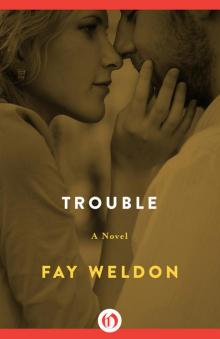 Trouble
Trouble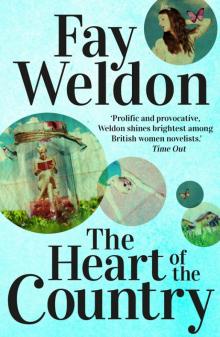 The Heart of the Country
The Heart of the Country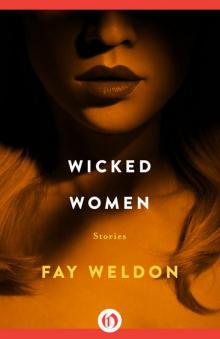 Wicked Women
Wicked Women Mischief
Mischief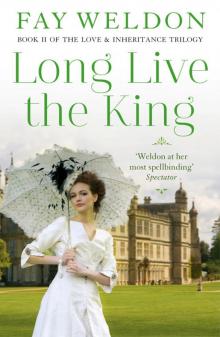 Long Live the King
Long Live the King Remember Me
Remember Me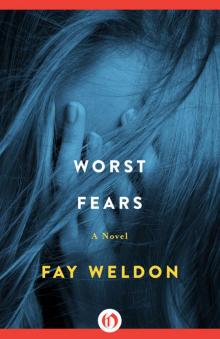 Worst Fears
Worst Fears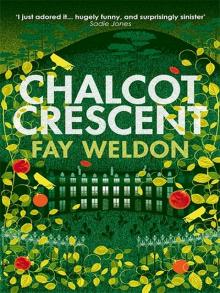 Chalcot Crescent
Chalcot Crescent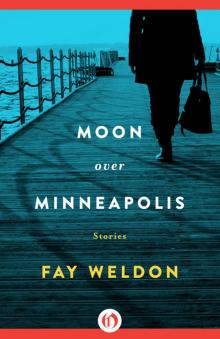 Moon Over Minneapolis
Moon Over Minneapolis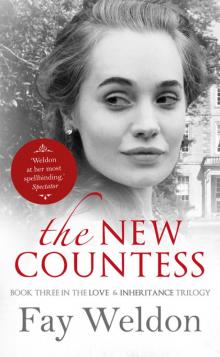 The New Countess
The New Countess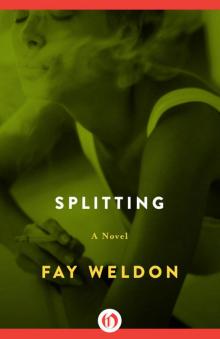 Splitting
Splitting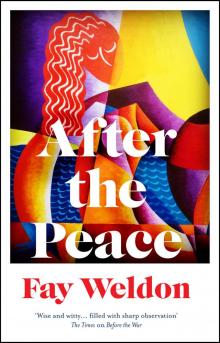 After the Peace
After the Peace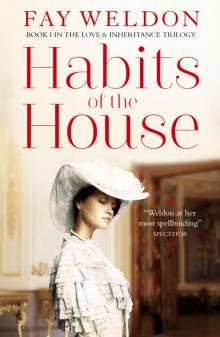 Habits of the House
Habits of the House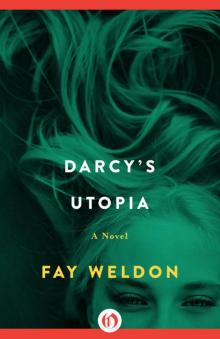 Darcy's Utopia
Darcy's Utopia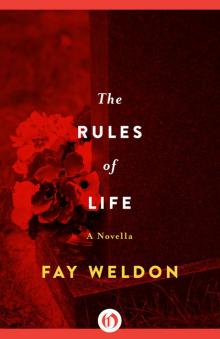 The Rules of Life
The Rules of Life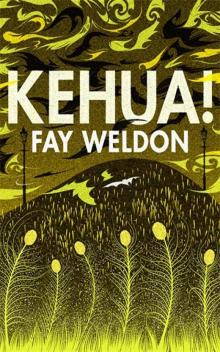 Kehua!
Kehua!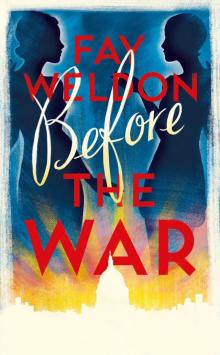 Before the War
Before the War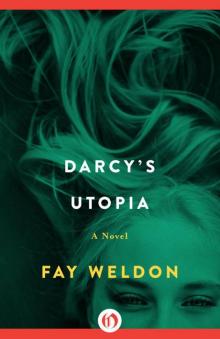 Darcy's Utopia: A Novel
Darcy's Utopia: A Novel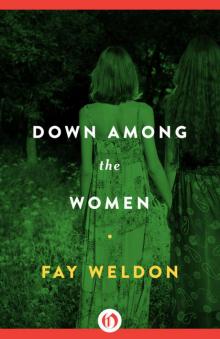 Down Among the Women
Down Among the Women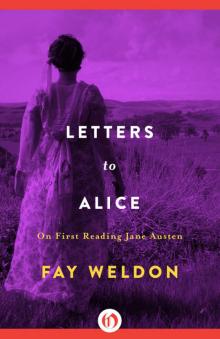 Letters to Alice
Letters to Alice 3 Great Historical Novels
3 Great Historical Novels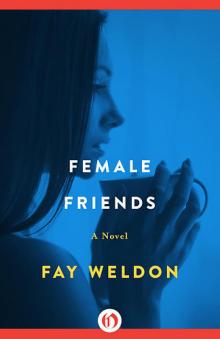 Female Friends
Female Friends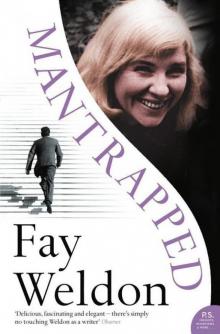 Mantrapped
Mantrapped The Bulgari Connection
The Bulgari Connection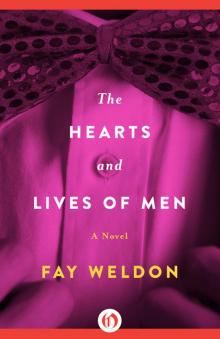 The Hearts and Lives of Men
The Hearts and Lives of Men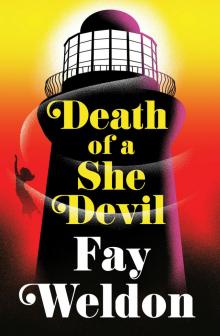 Death of a She Devil
Death of a She Devil